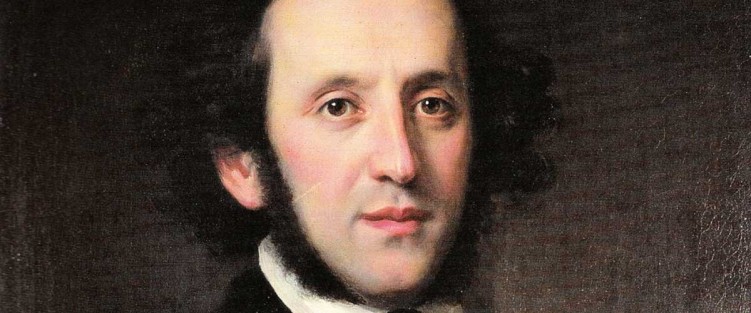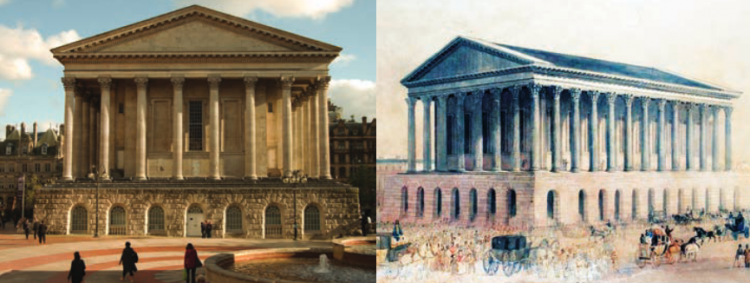 Why do we love Mendelssohn’s Elijah? For many conductors, performers and listeners, it is the perfect oratorio, combining all the dramatic musical elements required to bring this colourful story to life.
Why do we love Mendelssohn’s Elijah? For many conductors, performers and listeners, it is the perfect oratorio, combining all the dramatic musical elements required to bring this colourful story to life.
A more puzzling question is why do we love this character, Elijah? In the oratorio’s opening scene, the cantankerous prophet bursts into ominous incantation, pre-empting the overture with a curse. He condemns his people to drought and famine to force their allegiance to Jehovah, and then massacres the prophets of Baal at Kishon’s brook to ensure his rival cult will never rise again. But unlike other bad boy baritones (like Scarpia) or terrible tenors (like Pinkerton) or murderous mezzos (like Clytemnestra), we have sympathy for Elijah, thanks to librettist Julius Schubring’s careful management of Biblically inspired text. Elijah’s fiery, public character is balanced with his gentler, private self, with intimate scenes of tender compassion toward a widow and her child, his humble loyalty to his people, and his gratitude. Ultimately, in his own emotional wilderness scene, he confronts his self-doubt and contemplates suicide. He is saved by a group of angels who sing “Lift thine eyes to the mountains.”
Mendelssohn had a deep understanding of the power of oratorio, having revived, rehearsed and conducted J.S. Bach’s Saint Matthew Passion in 1829 as a 20-year-old in Berlin. Many of Elijah’s arias endure as staples of the solo repertoire with their timeless, memorable melodies and effective text setting. “O rest in the Lord” and “For the mountains shall depart” have the unpretentious air of popular song, while “Then shall the righteous shine forth” and “Hear ye, Israel” have the weight of Handelian opera. The supporting solo roles are also meaty, requiring depth of expression from the entire ensemble, with three of the four soloists playing multiple characters. The tenor must toggle between Elijah’s right-hand man, Obadiah, and his archenemy, Ahab, granting the tenor some wonderful tunes like “If with all your hearts ye truly seek me.” The mezzo portrays both the envious Jezebel and the graceful Angel. Perhaps the soprano has the most glorious music, with arias that were intended to be sung by the famous “Swedish Nightingale” Jenny Lind. Although Lind was unable to sing the premiere, letters between Mendelssohn and Lind survive, as he shared his struggle to write just the right notes for her.
The chorus, of course, is the big attraction. This robust assembly of enthusiastic singers devote many volunteer hours to intensive rehearsals as a group. They enliven Mendelssohn’s highly charged depiction of different groups of characters: starving citizens pleading for pity, enraged Baal worshippers competing for victory, astounded observers rejoicing at Elijah’s miraculous ascent to heaven in a fiery chariot. In several instances Mendelssohn heightens dramatic effects by writing for double choir or employing only women’s voices or contrasting the voice of a single child with Elijah’s mature baritone.
 The unsung heroes of Elijah are the people of the town of Birmingham, England. This West-Midlands industrial town maintained a firm, civic commitment to commission big, new works for its Triennial Festival. Founded in 1784 with the intention of raising funds for its general hospital, the festival became a great success; so much so that a purpose-built concert venue, the magnificent neo-classical Birmingham Town Hall, was erected in 1831. Mendelssohn’s Elijah (1846), Sullivan’s The Light of the World (1873), Dvořák’s Requiem (1891), Gounod’s Redemption (1882), Elgar’s Dream of Gerontius (1900), The Apostles (1903), The Kingdom (1906) and The Music Makers (1912) all received their first performance here. World War I put an end to Birmingham’s festival, but the city continues to support oratorio performances to this day. In February 2022 the oratorio The Ordering of Moses, composed by Canada’s own Nathanial Dett, received its UK premiere at the new Birmingham Symphony Hall.
The unsung heroes of Elijah are the people of the town of Birmingham, England. This West-Midlands industrial town maintained a firm, civic commitment to commission big, new works for its Triennial Festival. Founded in 1784 with the intention of raising funds for its general hospital, the festival became a great success; so much so that a purpose-built concert venue, the magnificent neo-classical Birmingham Town Hall, was erected in 1831. Mendelssohn’s Elijah (1846), Sullivan’s The Light of the World (1873), Dvořák’s Requiem (1891), Gounod’s Redemption (1882), Elgar’s Dream of Gerontius (1900), The Apostles (1903), The Kingdom (1906) and The Music Makers (1912) all received their first performance here. World War I put an end to Birmingham’s festival, but the city continues to support oratorio performances to this day. In February 2022 the oratorio The Ordering of Moses, composed by Canada’s own Nathanial Dett, received its UK premiere at the new Birmingham Symphony Hall.
The tradition continues
This fall two Ontario cities can boast at least a century-long tradition of singing large oratorios. Two different productions of Elijah with full orchestra can be witnessed only nine days apart. In Kitchener-Waterloo on Saturday October 22, the Grand Philharmonic Choir (who are celebrating 100 years of singing) and the KW Symphony at The Centre in the Square, conducted by Mark Vuorinen, will feature James Westman as Elijah. On Wednesday November 2, the 128-year-old Toronto Mendelssohn Choir conducted by Jean-Sébastien Vallée (along with with the Toronto Symphony Orchestra who are marking their own 100th anniversary this season) present Russell Braun in the title role at Roy Thomson Hall.
Cities like Birmingham, Toronto and Kitchener-Waterloo have done well at bringing together all the diverse skills and resources required to present oratorios. Amateur choirs are the embodiment of community music-making, made even more powerful and poignant after our forced pandemic silence. Paired with a professional orchestra, communicative soloists and a receptive audience, the dramatic effect of an oratorio is like no other musical experience.
Watch for Steph Martin’s newly commissioned “Water: An environmental oratorio” with the Grand Philharmonic Choir and KW Symphony, Centre in the Square, Sunday, May 28, 2023.



